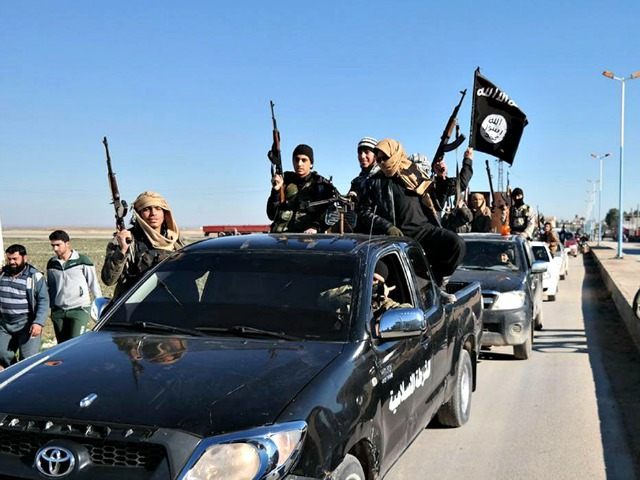The initiative formally known as the Islamic Military Alliance to Fight Terrorism, but often referred to in shorthand as “Muslim NATO” or “Arab NATO,” is a proposed 41-nation project to combat the Islamic State and other extremist groups. It has been under construction since late 2015.
The project has grown serious enough to have named a top commander, former Pakistani general Raheel Sharif, and scheduled meetings between national defense ministers within a few months. The goal would be to shield vulnerable countries from subversion or conquest by forces such as the Islamic State, al-Qaeda, and other powerful militant forces.
“This alliance is against terrorism, especially to help those countries which are threatened, but don’t have the necessary wherewithal to combat terrorists,” said Pakistani Defense Minister Khawaja Muhammad Asif.
Criticisms of the idea abound, beginning with the fact that Saudi Arabia is spearheading the project and will provide much of its funding. This alarms the Middle Eastern nations opposed to Saudi Arabia, which fears the alliance could become a politicized weapon against them.
Of course, the Shiite-Sunni schism that shapes so much of Middle Eastern politics plays a role as well. Newsweek notes that Sunni Saudi Arabia’s rival for regional super-power, Shiite Iran, had “been largely excluded from the coalition despite its widespread influence across parts of the Middle East and Africa.”
Pakistani officials hasten to assure Iran that the alliance will not be turned against it, but Iran will inevitably be suspicious of a leadership “quartet” that unites Saudi Arabia, Pakistan, Turkey, and Egypt.
Oman’s membership in “Muslim NATO” has been controversial as the sultanate has been toeing a difficult line of neutrality between Saudi Arabia and Iran. Originally, Oman was to be excluded from the IMAFT, a snub interpreted by some as retaliation for Oman assisting Iran diplomatically and permitting weapons smuggling into Yemen. Oman eventually did join the IMAFT, becoming the 41st member.
The UK Guardian notes that Sharif is “one of the most esteemed army chiefs in Pakistan’s history,” but objections have still been raised to his appointment as commander of the IMAFT, especially from Shiite groups in Pakistan. Sharif may be risking his esteem by accepting the leadership position, as the Asia Times reports he has “endured public mockery from across the political spectrum in Pakistan, and from Shiite religious leaders.”
Another criticism emanating from Pakistan is that the IMAFT could become a vehicle for Saudi Arabia to drag Pakistani troops into conflict zones such as Syria and Yemen, the latter a conflict Pakistan declined to participate in when the Saudis were putting together their multi-national intervention force.
Pakistani critics worry that if the IMAFT could exacerbate Sunni-Shiite tensions in their country and complain military resources are needed to deal with numerous security threats inside Pakistan’s borders. Similar objections have been raised to the idea of Nigeria contributing troops to the alliance when it is busy fighting Boko Haram on its home turf.
A few Pakistani troops have been stationed in Saudi Arabia for over fifty years, but there have been discussions about stationing an entire Pakistani combat brigade inside the Kingdom to defend against incursions by Yemen’s Iran-backed Houthi rebels and serve as a rapid-response force against other security threats.
Al-Arabiya quoted some grumbling in February to the effect that the IMAFT mission has been much talk but little action so far, and it’s not clear how many actual warfighters Pakistan, Saudi Arabia, or any of the other participants are actually willing to commit to the force. The lack of protocols or experience for the military forces of most member nations to fight in concert has also been pointed out. The Saudi coalition in Yemen isn’t really an inspirational example, given the state of affairs in that war-torn country and the human-rights complaints lodged against the coalition’s airstrikes.

COMMENTS
Please let us know if you're having issues with commenting.